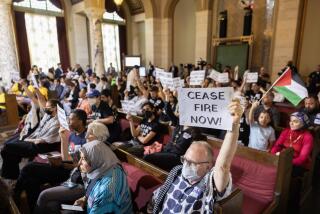After evicting monks, Cambodian temple in Long Beach reopens to discord
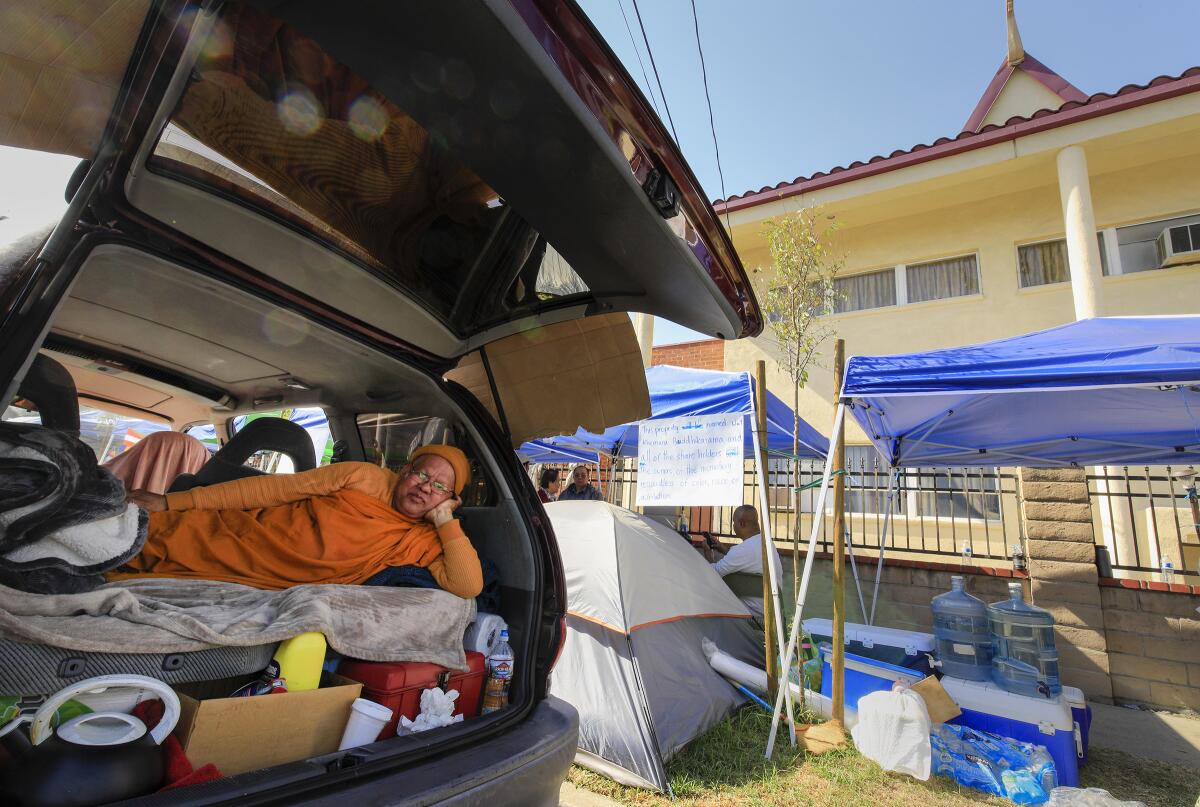
- Share via
For a few days this fall at the Khemara Buddhikarama temple, a chaotic scene unfolded.
On one side of the temple gates stood screaming protesters, demanding that a group of monks be allowed to return to their jobs. On the other side, a row of religious leaders lined up, ignoring shouts and bowing in prayer before following a procession into the pagoda for blessings.
Although the demonstrations have subsided in recent weeks, Buddhist opponents continue to face off in a battle roiling the largest Cambodian congregation in Long Beach.
On the grounds of the aging temple, opponents still pressure the board of directors for a public hearing to respond to their allegations of financial mismanagement. A main issue in the fight involves the undetermined fate of more than $300,000 in donations, some collected during special ceremonies, that the 19-member board has set aside for building a second pagoda.
Supporters of the temple’s four monks say they believe that the board — which in September won a lawsuit to evict two of the men — is punishing them for dissenting from the group’s priorities. In response, board member Kimthai Kuoch said that he and his group had tried “to be quiet” until accusations surfaced in the media because “we don’t want to see our community broken, being trashed like this. It’s so sad, so sad. We have to speak out.”
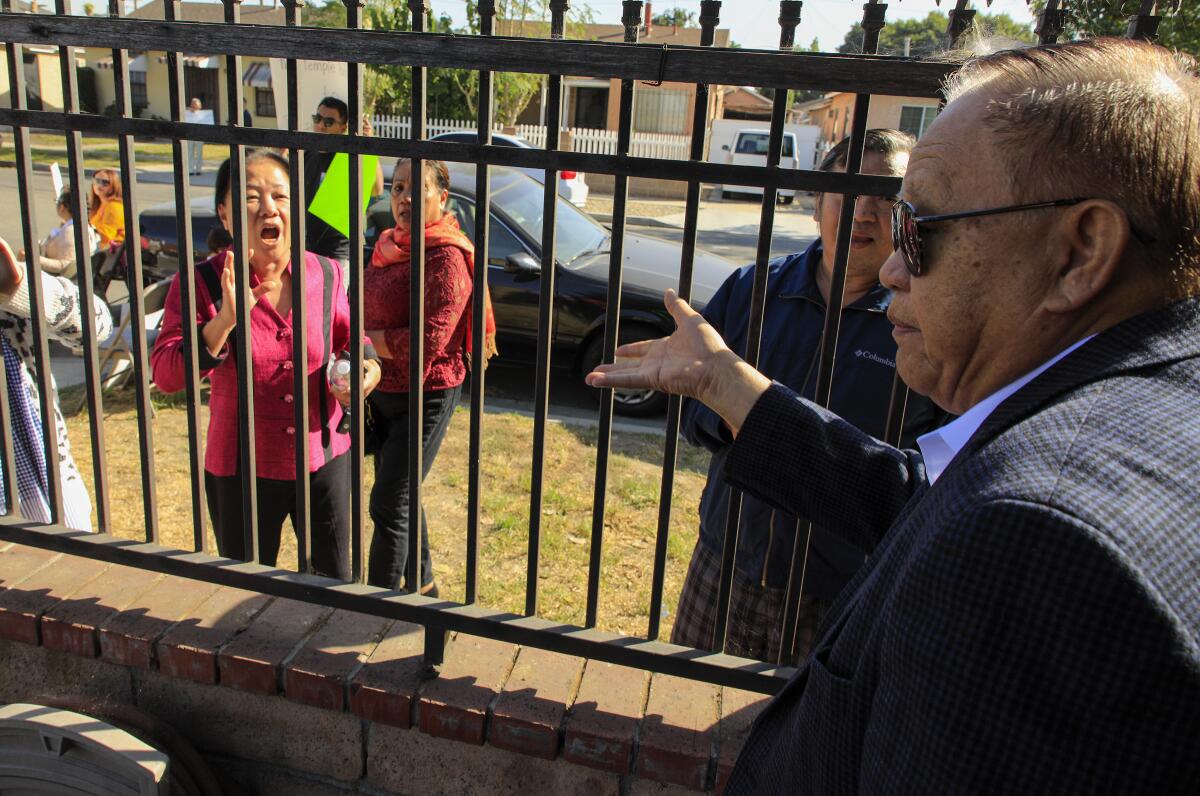
He said the eviction of the Venerable Thet Sim, head monk, and the Venerable Tith Bun, an assistant, is in part the result of their “diverting and collecting donations made by members of Wat Willow and failing to pay those monies to Wat Willow.”
Wat Willow is a nickname for the temple, in tribute to the street it’s on. Envelope donations are often marked in care of the monks or for general operations.
In November 2018, the monks received more than $60,000 total in donations total, Kuoch said, “a larger amount” that they did not share with the board to cover maintenance costs. The board treasurer challenged them and they gave back $14,995, keeping $34,997, Kuoch said.
“Everything donated since then, since that month, nothing has been given to the board,” he said.
The more than $300,000 that monk supporters are accusing the board of mishandling, he said, had been allocated to a construction fund for the new pagoda. Board members have unveiled plans for an iconic Preah Vihear temple — one that would mirror classical Cambodian architecture and could be a showplace for the city, home to more than 60,000 Cambodians, the largest such population outside the homeland.
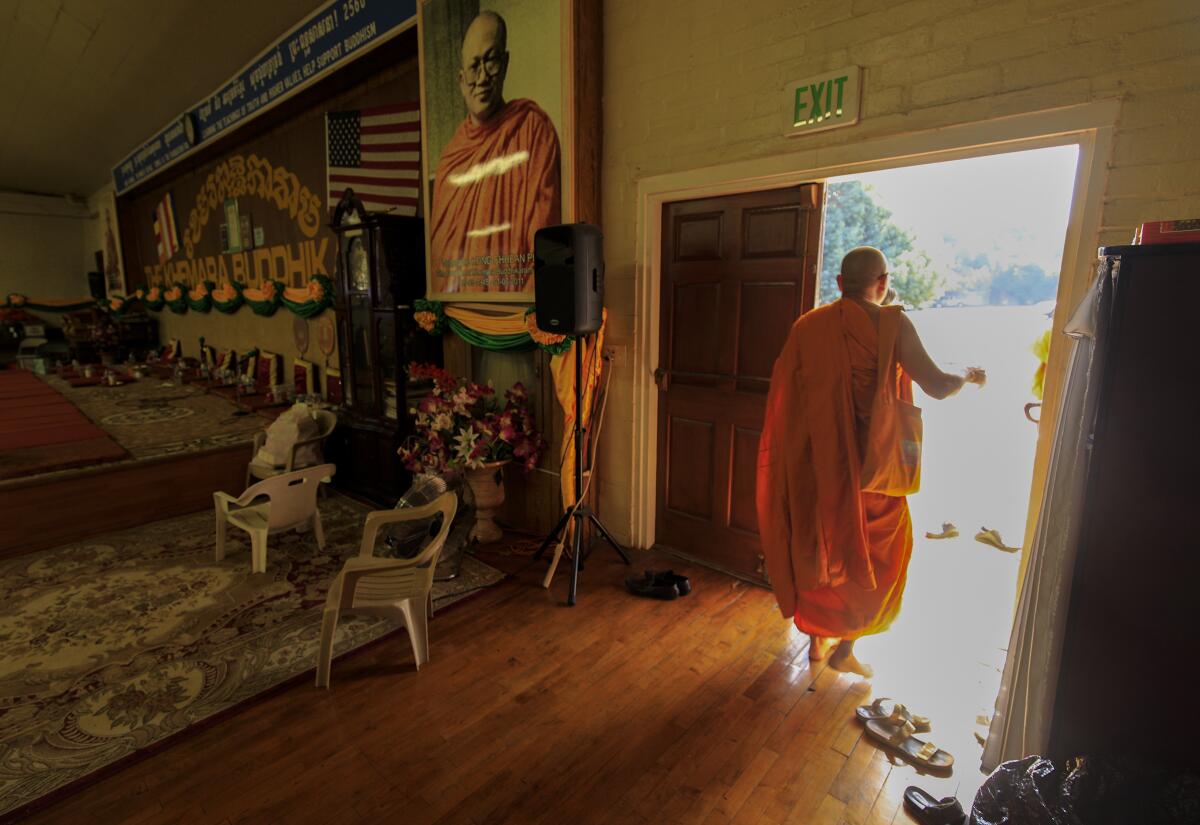
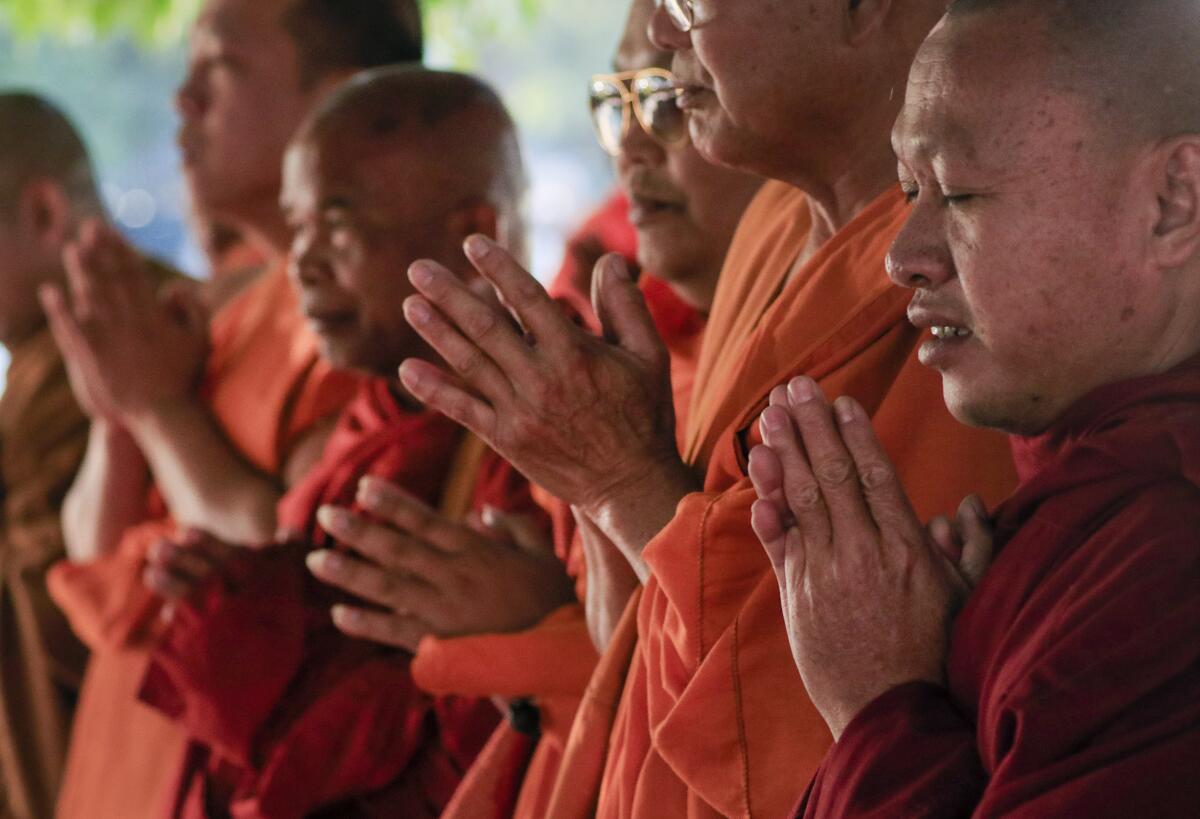
From October 2015 to April 30, 2019, the board raised $343,209 for the new construction, and according to Kuoch, more than $126,000 was spent on construction plan documents. Of the remainder, some has been spent on monthly temple operating expenses, including utilities and supplies. Nearly $217,000 is in a bank account earmarked for the future building.
“We are doing the right thing for the future of our temple and our community,” Kuoch said. “The monks are the one who need to account for their actions.”
Sim, the head monk, has denied the board’s accusations. “It’s not true,” he said. “Monks don’t get angry and the people want me to fight back against the lies, but I also need to keep peace.”
Another board member, Thongsy Khuon, said the monks and their supporters have “a right to speak out. But I do not pay attention. I like to come here and to be safe and to pray peacefully. I believe we are running the temple the right way.”
In early October, some board members, accompanied by officials from the Los Angeles County Sheriff’s Department, closed the site for 10 days for “reorganizing,” leaving the monks to bunk down in old cars along the sidewalk and some of their worshipers to camp in tents near them.
By month’s end, the board had hosted a “grand reopening” with visiting monks from seven Southern California congregations and supporters from across Southern California. The Rev. Seang Leng from Wat Santa Ana was among them.
“My goal is to help all the Buddhists improve with their religion,” he said. “We care about the future growth to benefit all members.”
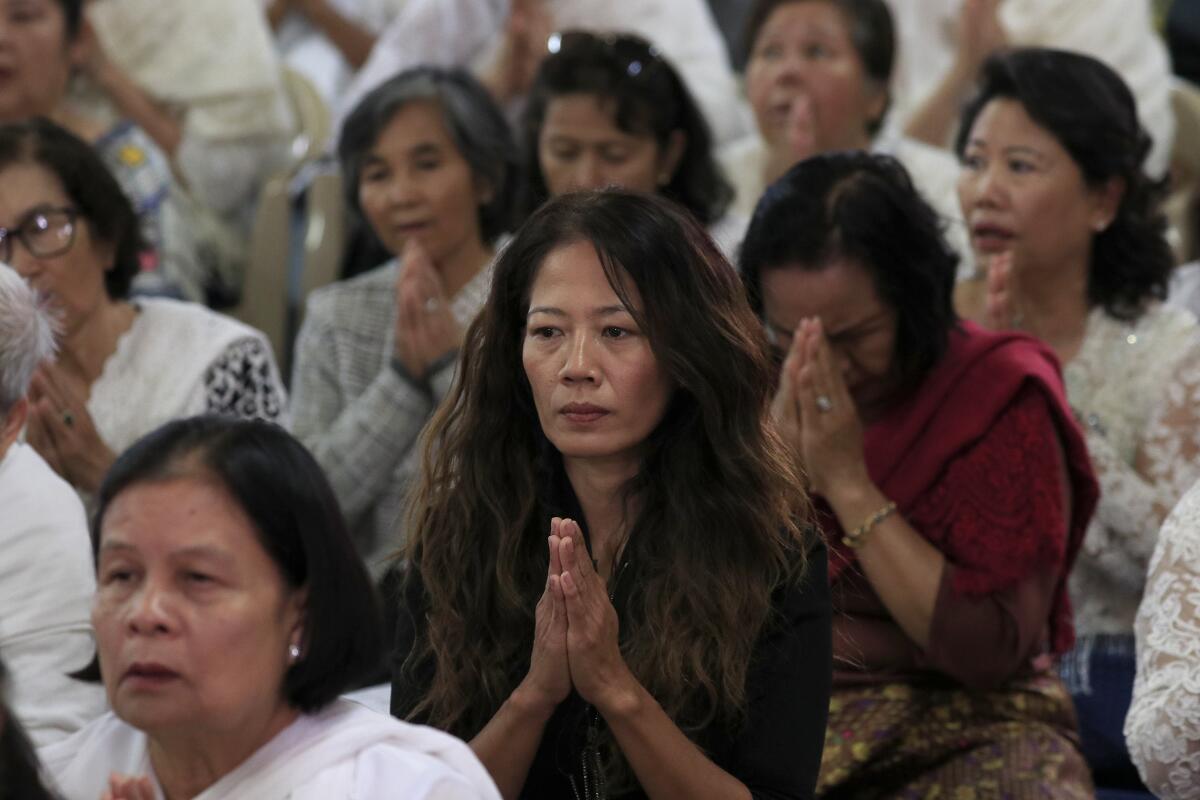
More to Read
Sign up for Essential California
The most important California stories and recommendations in your inbox every morning.
You may occasionally receive promotional content from the Los Angeles Times.



